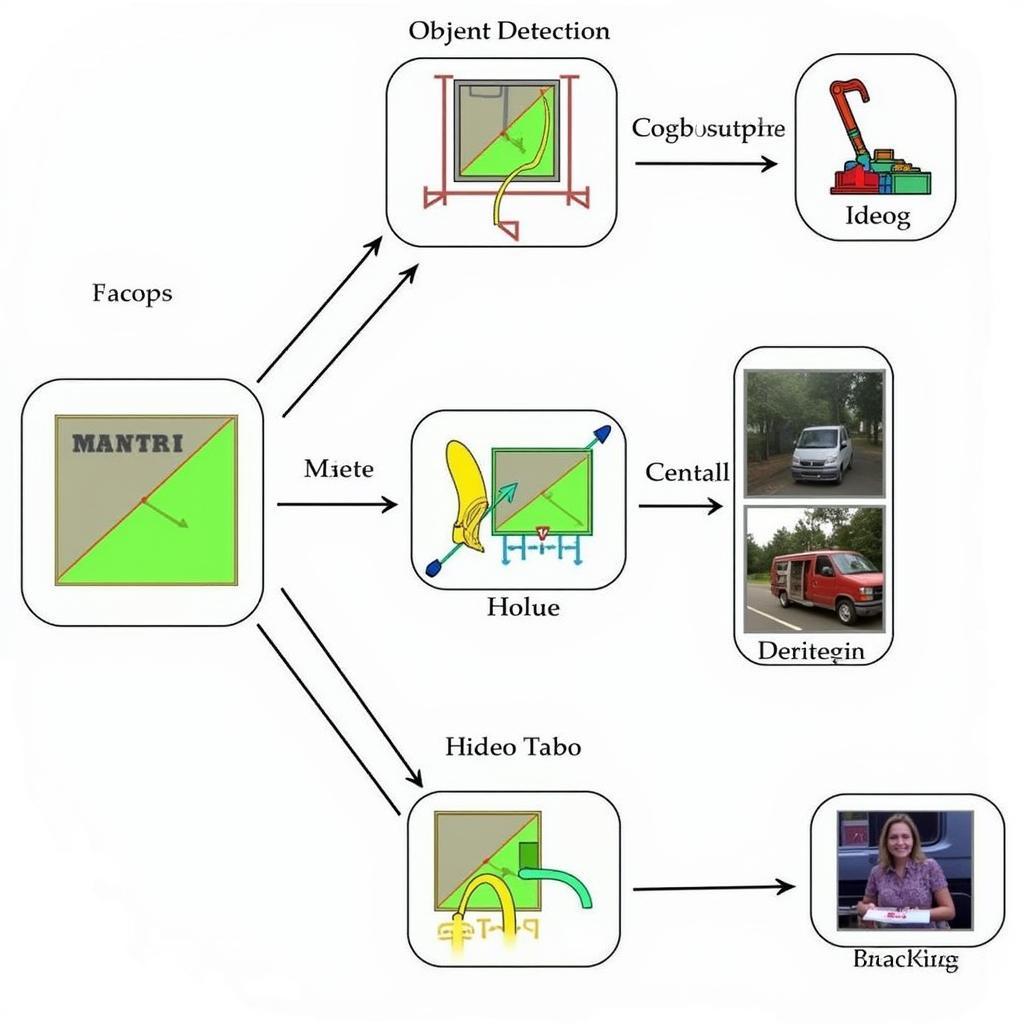Exploring Exciting MTL Careers: A Comprehensive Guide
October 14, 2024Navigating the world of Machine Learning can feel like stepping into a vast and unknown universe. Within this universe lies a constellation of specializations, each holding the potential for a fulfilling and impactful career. One such constellation, “Mtl Careers,” often piques the curiosity of aspiring ML enthusiasts. But what exactly does it entail, and how can you chart a course toward a successful journey in this domain?
Deciphering MTL Careers: Unveiling the Meaning
MTL, short for “Multi-Task Learning,” represents a fascinating branch of Machine Learning. Unlike traditional approaches where models are trained for a single task, MTL aims to develop models capable of learning and performing multiple tasks simultaneously. Imagine a single model that can not only translate languages but also compose music and generate realistic images – that’s the power of MTL.
Why Pursue MTL Careers? A Glimpse into the Allure
The allure of MTL Careers stems from the unique blend of challenges and rewards they offer. Here’s why they are capturing the imagination of the ML community:
- Enhanced Efficiency: MTL models can learn multiple tasks with less data and computational resources compared to training separate models for each task.
- Improved Generalization: By learning across various tasks, MTL models often exhibit better generalization abilities, performing well on unseen data and tasks.
- Real-World Applicability: Many real-world problems involve multiple interconnected tasks. MTL provides a natural framework to address such complexities.
Diving Deeper: Key Areas Where MTL Careers Shine
The applications of MTL are vast and continue to expand as the field evolves. Let’s explore some key areas where MTL Careers are making significant waves:
-
Natural Language Processing (NLP): MTL has revolutionized NLP tasks like sentiment analysis, machine translation, and question answering, enabling models to understand and generate human language with greater nuance.
-
Computer Vision: From object detection and image segmentation to video analysis, MTL is pushing the boundaries of what’s possible in Computer Vision, enabling machines to “see” and interpret the visual world with increasing accuracy.
 Computer Vision Advancements with MTL
Computer Vision Advancements with MTL
-
Robotics: MTL is empowering robots to perform complex tasks that require coordination of multiple skills, such as grasping objects, navigating environments, and interacting with humans in a more natural and intuitive manner.
-
Healthcare: MTL is revolutionizing healthcare by enabling the development of sophisticated models for disease diagnosis, personalized treatment recommendations, and drug discovery.
Essential Skills for Thriving in MTL Careers
Embarking on a successful MTL career path requires a solid foundation in Machine Learning fundamentals and a passion for pushing technological boundaries. Here are some essential skills to hone:
- Strong Programming Skills: Proficiency in Python and familiarity with ML libraries like TensorFlow or PyTorch are crucial.
- Deep Learning Expertise: A deep understanding of neural networks, especially architectures suited for MTL like hard-parameter sharing and soft-parameter sharing, is essential.
- Data Handling and Preprocessing: Expertise in cleaning, transforming, and preparing data for MTL models is vital.
Conclusion: Embracing the Future of Machine Learning with MTL Careers
MTL Careers represent a thrilling frontier in the ever-evolving landscape of Machine Learning. By combining theoretical understanding with practical implementation skills, aspiring ML professionals can unlock a world of opportunities in this exciting domain. As MTL research continues to advance and applications expand, the demand for skilled professionals in this field is only set to soar.
FAQs: Addressing Common Queries about MTL Careers
1. What are the different types of MTL methods?
MTL encompasses various methods, including hard parameter sharing, soft parameter sharing, and task-specific layers, each offering unique advantages and trade-offs depending on the specific tasks and data.
2. How does MTL differ from transfer learning?
While both leverage knowledge from multiple tasks, transfer learning focuses on improving performance on a target task by transferring knowledge from a source task. In contrast, MTL aims to learn all tasks simultaneously, potentially benefiting all tasks involved.
3. What are the challenges associated with MTL?
Challenges in MTL include negative transfer, where learning one task hinders the performance on another, and task weighting, determining the appropriate importance of each task during training.
4. What resources can help me learn more about MTL?
Numerous resources, including online courses, research papers, and books, delve into the intricacies of MTL. Exploring these resources can provide a comprehensive understanding of this fascinating field.
5. Where can I find MTL job opportunities?
Job boards specializing in Machine Learning and AI, as well as career pages of companies at the forefront of AI research and development, often feature openings related to MTL.
For personalized guidance and support in your MTL journey, contact us at Phone Number: 0915117113, Email: [email protected], or visit our office at To 3 Kp Binh An, Phu Thuong, Vietnam, Binh Phuoc 830000, Vietnam. Our dedicated team is available 24/7 to assist you.